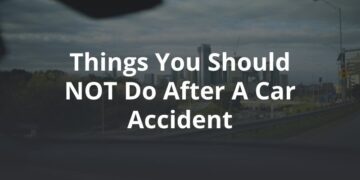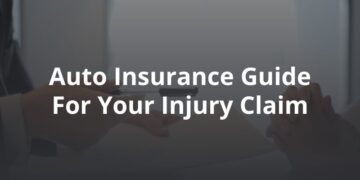It takes only a small mistake or a second of inattention to cause a deadly traffic accident. If that accident involves an 18-wheeler, the risk of injury and death increases considerably — and people in smaller vehicles are the most vulnerable.
According to the Insurance Institute for Highway Safety (IIHS), 4,136 people died in large truck crashes in 2018. Only 16 percent of those deaths were large truck occupants, while 67 percent were occupants of other cars.
Why do 18-wheelers pose such a singular threat to other drivers on the road? We’ve compiled a list of the most common factors that can lead to these devastating accidents.
Weight and Size
The U.S. Department of Transportation enforces legal weight, width, and length limits for semi trucks and trailers. But at a gross weight of 80,000 pounds and at 48 feet long, these vehicles are still inherently challenging to maneuver. Here’s why:
- Accelerate/stop distance and difficulty making turns. For an 18-wheeler, it takes longer to accelerate and to come to a complete stop. Sudden braking can cause the truck to “jacknife,” which means the cab and the trailer go in different directions. Semi trucks also can’t make sharp or last-minute turns as nimbly as smaller vehicles.
- Blind spots. There are blind spot danger zones on all four sides of an 18-wheeler. According to the Federal Motor Carrier Safety Administration (FMCSA), the front and back blind spot areas extend to 20 feet ahead and 30 feet behind, which is why trucks need a larger following distance. Blind spots on the sides — particularly on the right, where there is lower visibility — mean that other drivers should be careful while passing 18-wheelers.
- Load distribution. In addition to adhering to the maximum weight limit, truck loads must also be properly distributed between the various axles according to their size to prevent the load from being unbalanced. When this is not executed properly, the truck becomes harder to maneuver.
Driver Inattention and Recklessness
Simple precautions could prevent many devastating 18-wheeler accidents. Unfortunately, truck drivers and their employers don’t always take the measures necessary to ensure everyone’s safety on the road.
- Fatigue. While employers and drivers are required to adhere to Hours of Service (HoS) guidelines set forth by the FMCSA, companies sometimes incentivize drivers to make good time on deliveries or penalize drivers who fall behind. As a result, drivers may push through exhaustion and pull longer shifts on the road. According to the National Safety Council, driving while fatigued worsens reaction time, awareness of hazards, and ability to sustain attention.
- Reckless or distracted driving. The pressure to make deliveries on time can also motivate drivers to speed and drive aggressively. Boredom can also be a problem for those who spend so much solitary time on the road, which can lead to distraction from mobile device use.
- Drug and alcohol abuse. Factors such as long shifts, late hours, productivity demands, distance from family and community, and insufficient compensation can contribute to truck drivers’ use of alcohol, methamphetamines, marijuana, and other substances.
Insufficient Driver Training
A commercial driving license (CDL) and training is required in order to obtain a job as a commercial truck driver. But schools can vary in their approach, and some do not do an adequate job preparing their students for the realities of the job.
Employers can also contribute to the problem. Here are a few of the mistakes they make that allow inexperienced drivers on the road.
- Lack of screening. According to the American Trucking Association, the industry has a 96 percent turnover rate. When employers are constantly losing and onboarding employees, vital background information on applicants inevitably slips through the cracks or is disregarded. Ideally, all employers would perform criminal background checks, drug and alcohol screenings, work history verification, license checks, motor vehicle records checks, and other screenings — but this process isn’t always carried out with new hires.
- Lack of accountability. If you have ever seen a “How’s my driving?” sign on a commercial truck, you know that some companies value accountability and transparency more than others. Many do not have an efficient system in place for processing complaints about their employees, or they do not take appropriate action to penalize unsafe drivers.
Insufficient Vehicle Maintenance
Employers are responsible for performing regular inspections, maintenance, and repairs on vehicles, and drivers are responsible for alerting their employers of any obvious mechanical issues. Regrettably, some fail to do their due diligence.
Why Hire an 18-Wheeler Accident Lawyer?
At FVF, we understand the immense toll that an 18-wheeler accident can take on your mind and body, and we seek to provide critical support during this confusing and stressful time.
Our experienced 18-wheeler accident lawyers use extensive resources and knowledge to communicate with the other parties and insurance companies, fighting for compensation that will aid your recovery.
We also provide free, no-pressure evaluations that equip you with an understanding of your case and your options moving forward. Contact us today to receive the guidance and support you deserve.





